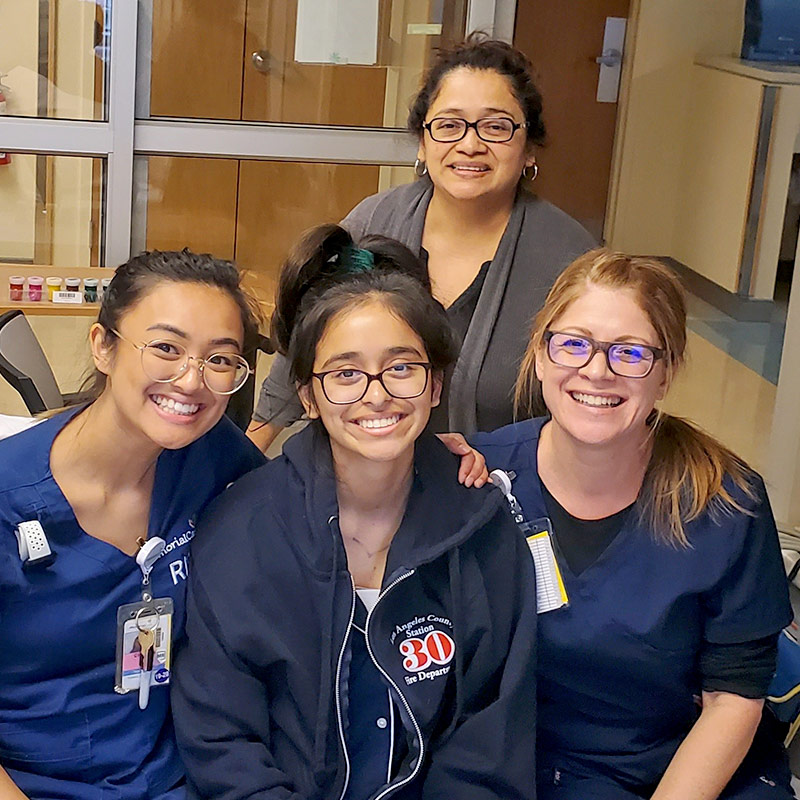Naima, 16, has always been an active kid and a great student. Growing up, she participated in taekwondo and once she began high school, she joined the track team, where she became a hurdler. In January 2020 during track practice, Naima’s life completely changed when she suddenly fell to the ground. Her heart had suddenly stopped beating.
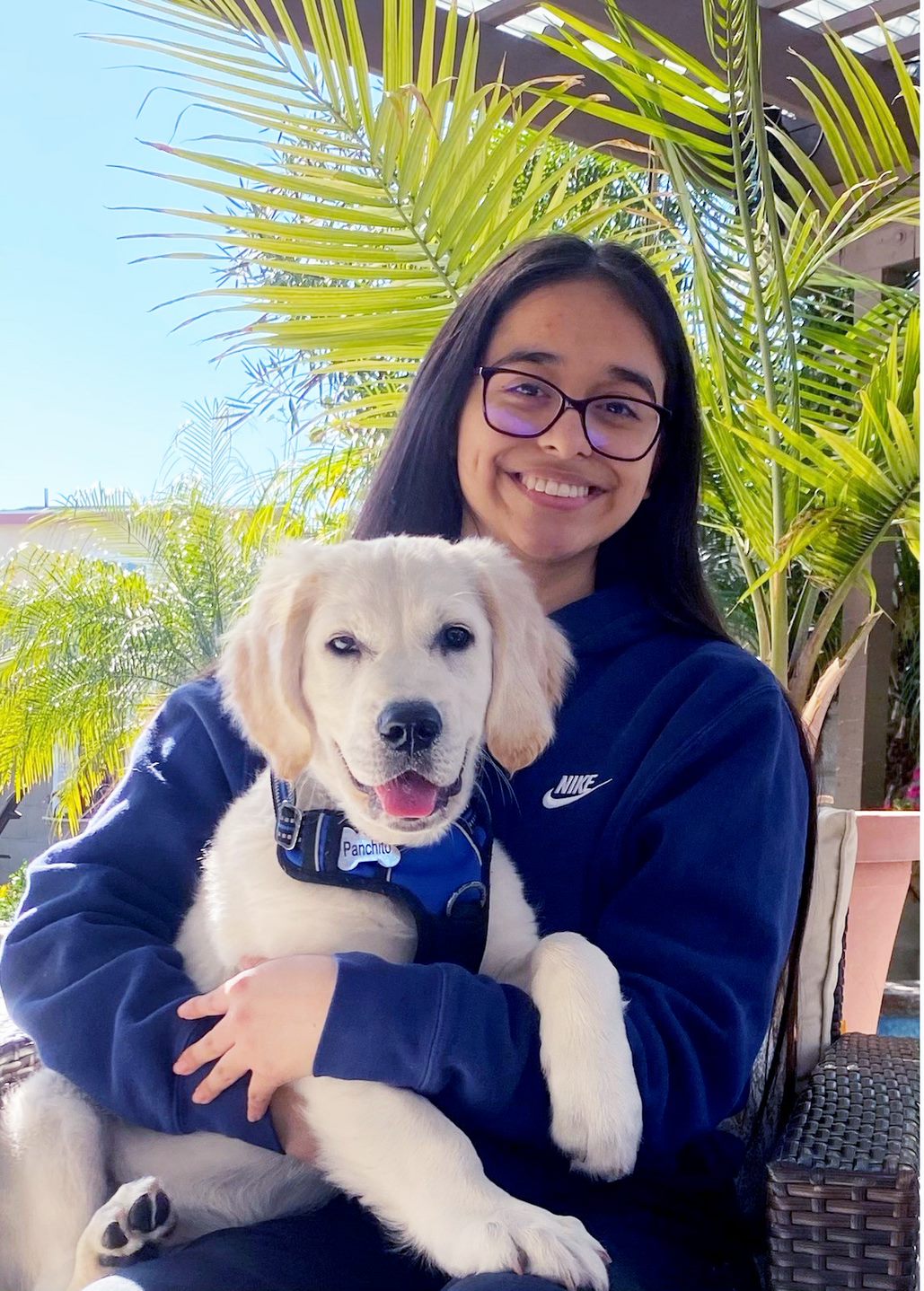
Naima’s track team and coaches knew she was experiencing a medical emergency and needed urgent medical attention. That’s when they called 911 and her parents, Jay and Evelin.
“I was already on my way to pick Naima up from track practice when I received the worst phone call of my life,” says Jay. “As soon as I pulled into the school parking lot, I saw the EMT team performing CPR on Naima.
The EMS team diagnosed Naima with cardiac arrest and had to resuscitate her to keep her alive. After more than half an hour, and needing to use a defibrillator, the EMS crew was able to get her heart beating again. Knowing though that there was a high chance of Naima’s heart stopping again, she was rushed to the nearest hospital.
Naima’s heart had suffered from ventricular fibrillation or V-Fib, perhaps the most serious cardiac rhythm disturbance. With V-Fib, the heart starts to quiver instead of rhythmically pumping blood out and within seconds patients can go into cardiac arrest.
Upon arrival, Naima suffered from another cardiac arrest. Her local hospital recognized that Naima’s case was so severe that she would need to be transported to a children’s hospital that could provide her with the complex pediatric cardiac care and expert pediatric trained team that her heart needed. That’s when the team decided to transport her to MemorialCare Miller Children’s & Women’s Hospital Long Beach.
“As soon as we arrived to the Emergency Department at Miller Children’s & Women’s, the entire staff was so compassionate and caring to my family and I,” says Jay. “While Naima was being stabilized, we couldn’t be with her, but the entire staff continuously updated us on her condition and comforted us as much as possible.”
Once stabilized, the care team in the Emergency Department concluded that Naima had a ventricular fibrillation, a serious cardiac problem that causes abnormal heart rhythms. Her condition required specialized, pediatric cardiac intensive care, so she was admitted into the Cardiothoracic Intensive Care Unit (CTICU), a dedicated unit in the Cherese Mari Laulhere Pediatric Intensive Care Unit (PICU) and part of the Children’s Heart Institute.
But Naima’s marathon was far from over. Within minutes of her getting into her room, it happened again. Her heart suddenly went into V-Fib and another cardiac arrest.
“While Naima was placed into her room in the CTICU, my entire family and I were waiting in the lobby to finally be able to see her,” says Evelin. “That’s when we heard a code called and everyone rushed into the unit, and the care team let us know that Naima’s heart had stopped again. I immediately expected the worst possible outcome.”
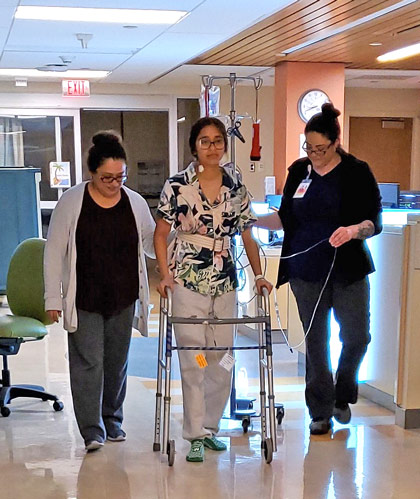 Fortunately, the experts in the CTICU are specially trained to handle these emergent situations and were able to successfully get Naima’s heart beating again.
Fortunately, the experts in the CTICU are specially trained to handle these emergent situations and were able to successfully get Naima’s heart beating again.
“The chance of survival following an out-of-hospital cardiac arrest is about 20 percent, and the chance of recovering without any significant neurologic deficits following the arrest can be less than 10%,” says Constantinos Chrysostomou, M.D., medical director, CTICU. “Once the heart stops beating, there is no blood flow and therefore no oxygen delivery to our organs. The cells, particularly brain cells, start to die and if the right treatment isn’t implemented immediately, this can lead to devastating life-long consequences.”
During Naima’s recovery, several treatments were used to help ensure that her heart and brain recovered completely.
“Given the rather grim prognosis associated with cardiac arrest, over the last decade we have developed a unique post-cardiac arrest neuroprotective protocol, that has completely changed the outlook of these patients. More than 80% not only survive, but go on to live a normal life,” says Dr. Chrysostomou. “Naima was brought to the right place, at the right time. Our team is not only trained to never give up, but to provide this highly specialized and life-saving care in the most caring and compassionate manner – just like we would provide it to our own children.”
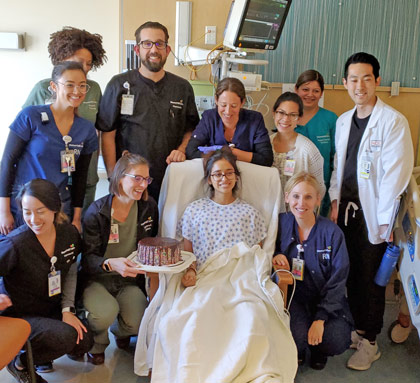 Naima had a remarkable recovery. After only three days in the hospital she began responding and moving. In less than three weeks, Naima was completely responsive and without any neurological deficits.
Naima had a remarkable recovery. After only three days in the hospital she began responding and moving. In less than three weeks, Naima was completely responsive and without any neurological deficits.
Given Naima’s life-long risk of V-fib, the Children’s Heart Institute team performed a special procedure to place an implantable cardiodefibrillator (ICD). This is a small device that could safely deliver an electric shock to restore a normal heartbeat and prevent cardiac arrest from happening again. Once that was done, she was ready to return home.
“After leaving the hospital, I mostly experienced weakness from being bedridden for a month,” says Naima. “Now I’m feeling much better and I only take one medication for precautionary measures. Although I can’t participate in sports right now because of the COVID-19 pandemic, I’m excited to get back to my normal life and the things I love as soon as it ends.”
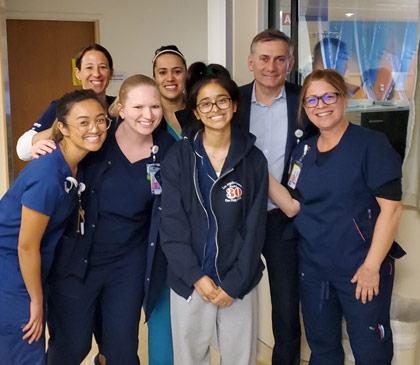 |
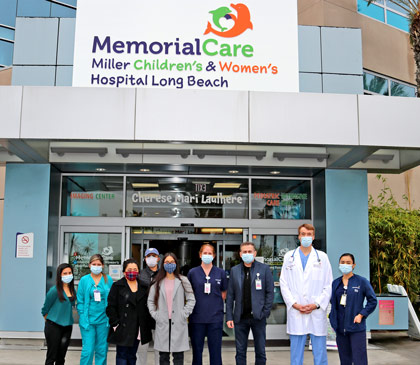 |

